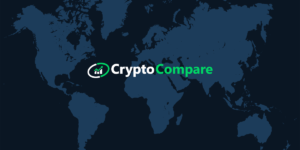Documents revealed by the Reuters agency show that Amazon has used private data of its sellers in India to copy its most popular products ja offer them at lower prices , selleks, et position its own brands platvormil.

Depositphotos.com
Amazon ‘s questionable strategy would be called ‘Project Solimo’ , and would consist of “using information from Amazon.in to develop products and take advantage of the platform to distribute those products among our customers,” says the report. They also claim that Amazon’s senior vice presidents Diego Piacentini and Russell Grandinetti endorsed the plan.
The documents included in täielik aruanne would reveal that Jeff Bezos ‘ company used this tactic in India to gain ground in that market.
Amazon would have collected private sales data to identify the most requested products. Later, they contacted the same manufacturers that produced them to replicate and sell them under their own brand names.
Osa the Solimo Project was also to analyze returns data and negative comments on products, to implement improvements in those that Amazon would manufacture.
These ‘cloned’ products were offered 10-15% soodsam et compete directly with sellers , according to the report. This would give Amazon a huge advantage, as its items ranked high in searches on its online store, leaving competitors in the lower ranks.
The report cites as an example the shirts of John Miller, a very famous brand in India. After copying his clothes, Amazon planned to show John Miller’s results in second or third place, favoring Amazon shirts.
Amazon already had a ‘copy and sell’ history
. Project Solimo practices revealed by the Reuters investigation add to previous allegations:
- In 2018 , Euroopa Liit käivitas investigation against Amazon for this issue. Two years later, he formally accused the company of replicating the best-selling items on its platform, representing direct and unfair competition for its affiliates. The case remains open pending resolution.
- In 2019 , Yahoo Finance avaldatud uuringud näidates kuidas Amazon’s own product development team had a “free buffet” when it came to accessing third-party data.
- Aastal 2020, USA esindajatekoda also pointed to such practices. However, in July of that year, Jeff Bezos himself denied everything during an antitrust hearing, saying that at Amazon “we have a policy against using seller-specific data to help our private label businesses.”
Instead of shaking your head at the leadership mistakes of #JeffBezos ja #ElonMusk , learn from the stumbling blocks of these entrepreneurial icons. What have they done wrong? https://t.co/3IojCJbRqd
– Entrepreneur in Spanish (@SoyEntrepreneur) Oktoober 8, 2021
Amazon denies everything
An Amazoni pressiesindaja contacted by the Kaaslane portal, denied the news agency’s reports, saying that:
“As Reuters has not shared the documents or their provenance with us, we cannot confirm the veracity or otherwise of the information as it appears in the article. We believe that these statements do not correspond to the facts and are not substantiated, ” said the spokesperson quoted by the media.
In addition, the company stated that its store does not give preferential treatment to any seller and that “Amazon policy strictly prohibits the use or exchange of seller-specific non-public data for the benefit of any other seller, including private label sellers. ” .
- '
- 2020
- ADEelis
- tütarettevõtete
- AI
- Amazon
- vahel
- monopolivastane
- artikkel
- bezos
- brändid
- ettevõtted
- kommentaarid
- ettevõte
- konkurendid
- Kliendid
- andmed
- arendama
- & Tarkvaraarendus
- dokumendid
- Ettevõtja
- vahetamine
- järgima
- tasuta
- täis
- juhataja
- Suur
- maja
- Kuidas
- HTTPS
- tohutu
- identifitseerima
- Kaasa arvatud
- India
- info
- uurimine
- IT
- Juuli
- Juhtimine
- Õppida
- Turg
- Meedia
- Populaarseim
- nimed
- uudised
- pakkuma
- Internetis
- poe
- avatud
- et
- Muu
- inimesele
- poliitika
- populaarne
- Portal
- era-
- Toodetud
- Toodet
- projekt
- aru
- Aruanded
- Tulemused
- Tulu
- Reuters
- müük
- müüma
- Sellers
- vari
- jagatud
- hispaania
- pressiesindaja
- salvestada
- Strateegia
- Tehnoloogiad
- ravi
- us
- Yahoo
- aasta
- aastat






